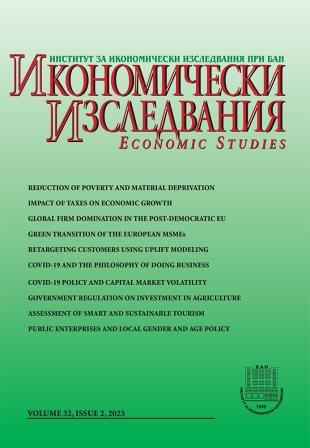COVID-19 Vaccination, Government Strict Policy and Capital Market Volatility: Evidence from ASEAN Countries
COVID-19 Vaccination, Government Strict Policy and Capital Market Volatility: Evidence from ASEAN Countries
Author(s): Herjuna Qobush Izzahdi, Ani Wilujeng SuryaniSubject(s): Economy, National Economy, Financial Markets
Published by: Институт за икономически изследвания при Българска академия на науките
Keywords: COVID-19; mass vaccination; stringency policy; stock market volatility
Summary/Abstract: The COVID-19 pandemic had a negative impact on the volatility of the stock market in the ASEAN region. Mass vaccination and strictness policies are government efforts to tackle stock market losses. Hence, this study aims to examine the effect of the COVID-19 vaccination and the stringent government policies on the volatility of stock markets in ASEAN countries. We collected the daily index prices, the number of vaccines, and the stringency index from 13 January 2020 to 31 August 2021. Using the GJR-GARCH model (1, 1) and Generalized Least Square regression, this study found that the mass vaccination had a negative effect on stock market volatility, whereas the government’s stringent policies had a positive effect. Mass vaccination tends to increase the confidence of economic actors, impacting investors’ confidence in the stability of the stock market. Meanwhile, the government’s strict policies have caused uncertainty among economic actors and investors regarding the economic prospects during the pandemic, leading to high levels of volatility. Therefore, governments must promote more aggressive vaccination policies, thereby reducing stringent policies for economic agents.
Journal: Икономически изследвания
- Issue Year: 2023
- Issue No: 2
- Page Range: 117-135
- Page Count: 19
- Language: English

